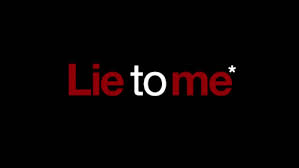What’s next in the music industries play box of failing to adapt to the not so new digital landscape? Well maybe they could propose or should I say mandate a pay before you play levy. It must be mighty frustrating for these conglomerates to stomach the fact that people can play their legally purchased tunes whenever and wherever they like with non additional compensation for the sweat of the brow going to the struggling performer who first created the musical work (seldom does anyway). If I did not know any better I would call it intellectual property theft, of course I do but the greed of the music industry know no bounds and I am sure in time they will come cap in hand to government worldwide demanding this minor change to copyright.Think this is far fetched? It’s probably not as far fetched as much as you might first think. Today comes the news that Apple could be launching an iTunes cloud music service well this has been the scuttle bug for some time now, although the company has said nothing publicly about its plans to offer this service. However, the latest version of Apple's MobileMe iDisk application does let iPhone users and I would assume iPad users as well the ability to stream music from their virtual lockers held on Apple servers to their connected device.
This new service is far from the streaming music service that pundits were expecting but there well might be a reason for Apple’s timid approach and yes I did use Apple and timid in the same sentence. Michael Robertson, CEO of a competing music locker service MP3tunes thinks this will cause a stir among record labels. And so It appears that the Universal Music Group are quite annoyed because in their interpretation of copyright law Apple would need another licence to allow it to let its users listen to music they had already legally purchased and stored on their servers.
They believe that companies who intend to offer personal cloud music services that limit the service to backing up and downloading are OK however when it comes to streaming music files this would require the company entering into a license and paying a per stream fee.
So obviously the new Apple's service which allows its users unlimited sharing, no need for a user name or password and streaming without a license might just cause a little bit of a stir from the record labels. It would also appear that Michael Robertson and MP3tunes are currently being sued by music label EMI for not seeking licensing deals in offering a similar service, so it’s hardly a surprise that he is making his presence in the space known and blogging up the issues. It is extraordinary that each time a company innovates and creates a new service that helps to encourage the purchases of music from legal alternatives by giving the customers an additional incentive by offering a useful value added service that clearly encourages the said consumption of music is promptly culled by greed. I suspect that Apple is playing the softly softly approach until the current legal grey areas are ironed out. But if users will have to pay again to stream a product they already have legally purchased then it will fail a real shame but again no real surprise.
So will we ever get to the need for a licence to play our music? I don’t think so because I believe the music industry as we know today will surely have fallen over by then, as there must be a limit to how many times you can shoot yourself in the foot and remain standing. Unfortunately greed is not the answer to the music industries woes and so trying to extract another rent from legitimate customers really only insults the last of your paying customers, is it any wonder so many have deserted and really only a matter of time for the rest to also desert the sinking ship. It does not have to be this way.
What do you think? leave me a comment no licence fee required.




